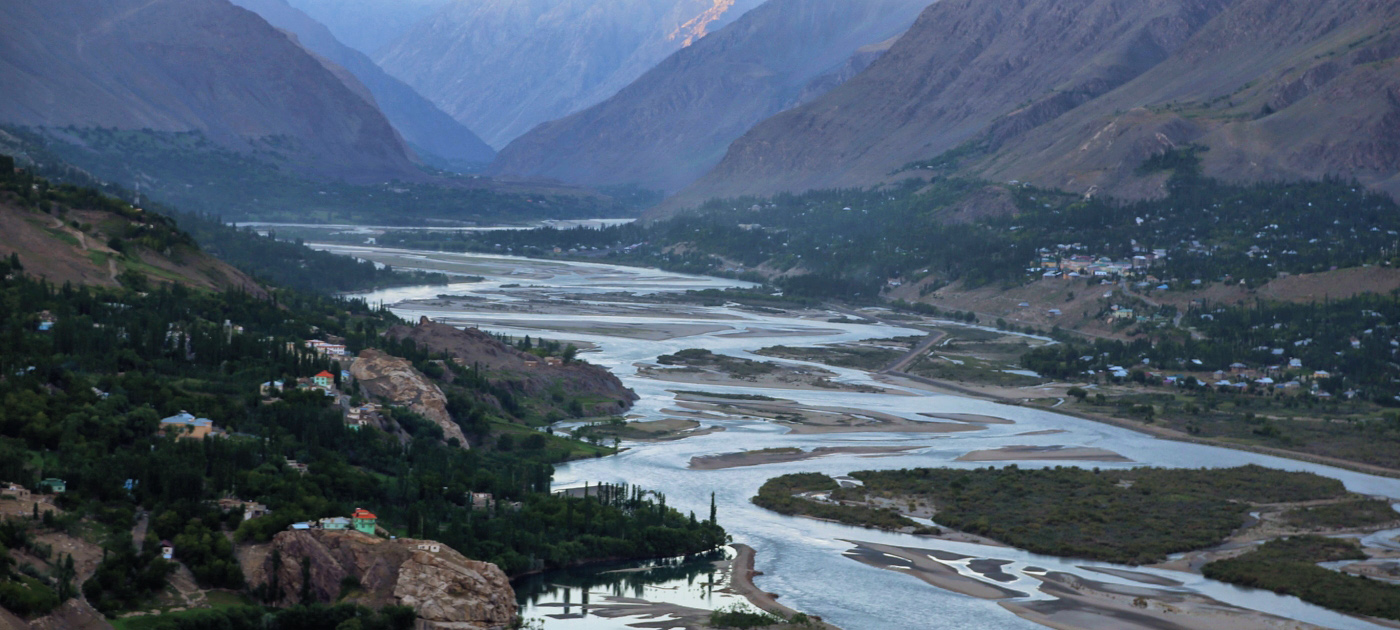Source: UNEnvironment.Org
Dushanbe/Kabul, 24 September 2020 – The Islamic Republic of Afghanistan and the Republic of Tajikistan have taken an important step in strengthening joint efforts to protect their unique, shared mountain ecosystem of the Panj Amu Darya river basin with the signing of the two nations’ first-ever bilateral Memorandum of Understanding (MoU) on environmental protection.
The agreement, which was signed in Dushanbe on 17 September 2020 and has a five-year duration, focuses on five key areas: climate change adaptation; biodiversity conservation; monitoring of water quality; environmental assessment, and sharing of knowledge and expertise on ecosystem management. It also includes a commitment by the two countries to undertake environmental impact assessments of joint projects and to notify each other in case of potential environmental impacts across borders.
“It gives us great pleasure to welcome our friends and neighbours from Afghanistan in Dushanbe to conclude today’s important agreement and join our hands in conserving the outstanding wildlife of our shared mountain ecosystems and help our peoples adapt to the growing impacts of climate change,” said Sheralizoda Ahmadjon, Chairman of the Committee on Environmental Protection of Tajikistan.
The spectacular landscape of the Pamir and Wakhan mountains, whose glaciers give rise to the Amu Darya – Central Asia’s largest river – is home to iconic species including the endangered snow leopard, mountain goats and sheep, and endemic vegetation communities.
With the ranges’ strategic location at the crossroads of the historic Silk Road, the new agreement seeks to solidify the alliance between the two countries in protecting the fragile mountain ecosystem by mitigating the environmental impacts of future investment plans in infrastructure, extractives and trade, as well as supporting local communities in adapting to climate change through sustainable natural resource management practices.
Discussions between the two countries first took place in 2012 under the auspices of the UN Economic Commission for Europe, which led to the endorsement of an MoU on the exchange of hydrological data for the Panj-Amu Darya in 2014. This MOU has enabled the installation of hydrological stations along the over 1,000-kilometre-long shared river border between the two countries, and the exchange of water flow data. This data is critical not only for water resources management and climate adaptation, but also for flood and drought forecasting and early warning systems.
The conclusion of a new environmental cooperation MOU represents the second major milestone of this bilateral dialogue process, which UNEP helped facilitate, supported by the European Union, under the Opportunities for Mountain Area Integrated Development project.
“The agreement provides a structured framework for Afghanistan and Tajikistan to practically address the threats of climate change and biodiversity loss. We hope this cooperation will continue to extend to the other countries of the Amu Darya basin in the future,” said Gary Lewis, Director of UNEP’s Disasters and Conflicts Programme.
The MoU also fulfils the commitments made by the two countries under the Protocol of the 7th Meeting of the Intergovernmental Economic, Commercial, Social and Technical Commission (July 2019) to expand their cooperation efforts to protect and sustainably manage their natural resources.
Zoi Environment Network – a non-governmental organisation based in Switzerland – also contributed to the organization of meetings and has been a long-standing partner in the Afghan-Tajik cooperation process.
The new agreement also establishes a Technical Working Group on environmental protection responsible for development and implementation of cooperative programmes and activities.
One of the first activities under the new agreement is a study tour for environmental experts from both countries to survey the environmental challenges in the Panj basin – Pamir Mountains region – and to develop a joint environmental action plan. To facilitate knowledge exchange, UNEP is also supporting both countries in developing a geospatial platform to exchange environmental information.
Source: UNEnvironment.Org






